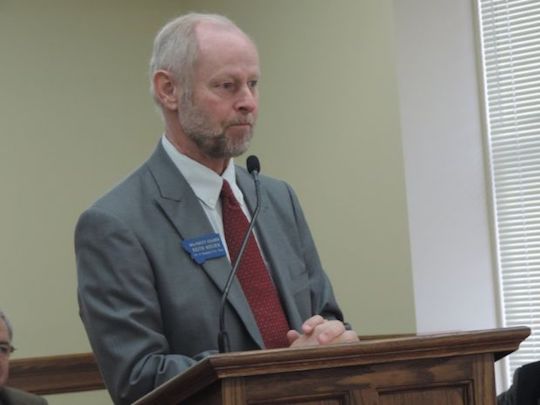The Montana legislature made national headlines last week, but not the good kind like you want. Representative Derek Skees of Lakeside sponsored HB 595, which would amend the state constitution to redefine “person” as “all members of the species Homo sapiens at any stage of development, including the stage of fertilization or conception.” Zygotes? People. Fertilized eggs that do not implant in the uterus as a result of IUD birth control? People. Ectopic pregnancies? People. Skees’s bill would criminalize not just abortion but a whole raft of women’s health services that most people consider morally neutral, if not inherently good. It’s a bold declaration of support for the lives of the pre-born, but does it do enough to make post-born lives miserable?
Enter Sen. Albert Olszewski (R-Kalispell). His bill would require doctors to take every measure possible to preserve the lives of fetuses beyond 24 weeks of development, including caesarian section and resuscitation after abortion or miscarriage. Doctors who don’t would be subject to criminal prosecution. Imagine, for a moment, the joy a woman would feel after procuring a legal abortion, only to watch her obstetrician resuscitate the fetus and present her with her new child. Don’t worry, though; that situation will never happen, because no obstetrician in her right mind would see a pregnant woman knowing that it would expose her to criminal investigation should anything go wrong.
Also, neither of these bills has a snowball’s chance of becoming law. Nor does Sen. Keith Regier’s (R-Kalispell) proposal to ban abortion after the 20th week of pregnancy. Even if they make it out of the legislature, Gov. Steve Bullock will veto these bills faster than you can say Roe v. Wade. In this way, they take on a pleasing symmetry. These laws that insist life begins at conception are unlikely to move beyond the concept stage themselves. As pure theories, they are free to be as draconian and unenforceable as the most virulent activist could hope. It’s kind of like the way their authors—middle-aged men from the Flathead, to a one—can rail against abortion without any fear of getting pregnant themselves. You can read all about their strange performances in this week’s column for the Missoula Independent. Probably, we’re going to get some letters. We’ll be back tomorrow with Friday links!





